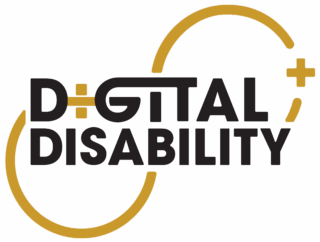Digital Disability

This program advances digital equity for people with disability through three interconnected research focus examining digital citizenship, accessible media, and inclusive design innovation.
Research Focus
The program investigates how people with disability participate in and access digital technologies, media, and cultural activities. Through co-designed methodologies, the research generates evidence about barriers to digital inclusion, innovative accessibility solutions, and pathways to full digital citizenship for people with disability.
Key Research Streams
- Digital Inclusion Innovation: Examining inclusively designed digital media and communication developed during the COVID-19 pandemic to create sustainable frameworks for digital accessibility that align with Australia’s Disability Strategy 2021-31.
- Accessible Cultural Participation: Investigating audio description production and consumption across Australian cultural life, including emerging applications of generative artificial intelligence to expand access to visual media and cultural activities.
- Digital Citizenship: Advancing a new conceptualization of disability digital citizenship through benchmark research on how people with disability experience digital technology, encounter barriers, and can achieve equitable participation in the digital age.
Expected Outcomes
The program will deliver co-designed protocols, guidelines, curriculum materials, and communication strategies that empower disability organizations, media industries, and government to embed inclusive design practices. An evidence base on disability digital citizenship will inform national digital policy and strengthen Australia’s research capabilities in inclusive and accessible technology.
Impact
This research benefits people with disability, disability organizations, media producers, and government by providing actionable roadmaps to improve digital inclusion, ensure access to cultural activities, and address digital inequities facing Australians with disability.
Program Leader
John Curtin Distinguished Professor Katie Ellis, Senior Research Fellow, MCASI
Researchers
Dr. Amy Dobson, Research Associate, MCASI
Prof. Mike Kent, Internet Studies, MCASI
Prof. Tama Leaver, Internet Studies, MCASI
Dr Kathryn Locke, Research Associate, MCASI
Dr. Gwyneth Peaty, Internet Studies, MCASI
Ms. Kai-Ti Kao, Sessional Academic, MCASI
Dr. Divya Garg
Dr. Jennifer Mckellar
Dr. Kelly Moes
Kim Cousins
Projects
$46635 Access on Demand: A study of disability and streaming television 2020. Australian Communications Consumer Action Network. CI Katie Ellis.
US$148 103.00 (AU$ 222 154.50) Moving Pictures: Using digital media to improve dementia care in India. Alzheimer’s Association International Research Grant Program – Alzheimer’s Associate Research Grant (AARG). CIs Brijnath, B., Cooper, C., Santosh, L., Varghese, M., Dow, B., Ellis, K., Kent, M., Antoniades, J.
$40000 Disability Inclusion Investment across the digital delivery continuum. National Centre for Student Equity in Higher Education. Cis Katie Ellis (Curtin), Matt Brett (Deakin), Tim Pitman (Curtin), Darlene McLennan (Utas), Elizabeth Knight (Vic2.2toria University).
$842 211.00 Department of Health: Dementia and Aged Care Services Fund – Moving Pictures: Using film and digital media to raise dementia awareness in CALD communities (Extended project) CIs: Bianca Brijnath (Curtin University), Jon Adams (UTS Sydney), Colette Browning (RDNS Sydney), Dianna Goeman (RDNS Sydney), Katie Ellis (Curtin University), and Mike Kent (Curtin University).
$7 000.00 Echo 360 Research Grant Automatic Closed Captions and Immersive Learning in Higher education. CIs: Katie Ellis and Mike Kent.
$17 000.00 Curtin Learning and Teaching Innovation Grant – Digital technologies and the completion rates of university students with disabilities: Inclusive learning for the future. CIs: Katie Ellis, Mike Kent and Tim Pitman.
$431 089.00 Department of Health: Dementia and Aged Care Services Fund – Moving Pictures: Using film and digital media to raise dementia awareness in CALD communities CIs: Bianca Brijnath (Curtin University), Jon Adams (UTS Sydney), Colette Browning (RDNS Sydney), Dianna Goeman (RDNS Sydney), Katie Ellis (Curtin University), and Mike Kent (Curtin University).
$32 000.00 ACCAN Grants Scheme for the project – Accessing Audio Description in Australia: An online Resource. CIs Katie Ellis and Mike Kent.
$23 736.29 Curtin Learning and Teaching Innovation Grant – Internet of Things (IoT) and Education: Implications for Students with Disabilities. Project Leader Mike Kent.
$40 000.00 Louisa Alessandri Memorial Research Fund Grant – Using smartphones to navigate urban spaces – People with disabilities and the role of mobile technologies in three WA locations. CIs Katie Ellis and Mike Kent.
$18 004.44 Curtin University Teaching Excellence Development Fund Grant – Alternative Approaches to Engaging with Video Content. CIs Mike Kent and Katie Ellis.
$29 991.00 National Centre for Student Equity in Higher Education grant – Access and barriers to online education for people with disabilities. CI Mike Kent.
$26 200 ACCAN Grants Scheme for the project – Accessing Video on Demand: A study of disability and streaming television. CIs Katie Ellis and Mike Kent.
ARC Grants
2025-2029 Disability and Digital Citizenship – https://app.dimensions.ai/details/grant/grant.14526681
2024-2028 Digital Disability Inclusion: design lessons from COVID-19 – https://app.dimensions.ai/details/grant/grant.13975354
2024-2026 Diversifying audio description in the Australian digital landscape –https://app.dimensions.ai/details/grant/grant.13822279
2021-2024 The evolution of disability arts in Australia – https://app.dimensions.ai/details/grant/grant.9783227
